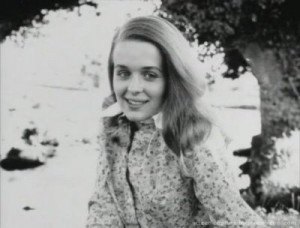 In honor of Arts Advocacy Day, we at NAS are pulling back the curtain a bit and share our own thoughts on why the arts matter? We’re continuing where we started last week with posts by members of our team. We invite you to add your thoughts as well.
In honor of Arts Advocacy Day, we at NAS are pulling back the curtain a bit and share our own thoughts on why the arts matter? We’re continuing where we started last week with posts by members of our team. We invite you to add your thoughts as well.
As a 14-year old boy at school in Alexandria, Virginia, I had an embarrassment of riches: the chance to see as much theater as I wished by merely signing my name on a piece of paper at school. For a short time, I decided to ignore this in favor of more important pursuits like buying a fake ID (success) and not embarrassing myself playing football (fail). The first play I remember ignoring was Zorba the Greek with Anthony Quinn. I had no idea who Zorba was, but knew Anthony Quinn was a Big Deal. Theater excursions to Manhattan as a younger child to see Big Deals (Richard Burton, Camelot, Big Deal; Sarah Jessica Parker, Annie, later a Big Deal) mostly left me thinking, well, big deal. But being a teenager, it was my inner monologue that carried the day (Is this a cool thing to do? Indeterminate information. Wait this one out.) Cue 40 classmates raving the next day about the play and Anthony Quinn (Now sufficient data. Don’t be an idiot. Go to everything.). And so I did. And so it began. There were trips to Arena Stage, the Folger, the Kennedy Center. I learned much, like why smart girls don’t take German (‘It isn’t at all a becoming language. I know perfectly well that I look quite plain after my German lesson.’ Cecily, The Importance of Being Earnest, somewhere in Act II, Arena) and the verities of father-daughter relationships (Lear, Folger). But in a story older than Nell Gwyn, it took an actress to hit me hard between the eyes and forever hook me on theater. Sinéad Cusack and Derek Jacobi, very much in that order in my mind, came to Washington in RSC productions of Cyrano de Bergerac and Much Ado about Nothing. I saw both back to back and the hook was set. I thought I was enamored with Sinéad Cusack, but I was beginning be enamored with theater. A year of theater took me to places I hadn’t imagined. In college, living in London, I had another year of theater. Every week Time Out would arrive and merely reading the culture listings, plotting the week, was dizzying. Again, I learned things: at the Royal Court, the Almeida and the National. There are thousands of reasons why culture and the arts are essential. There are almost an equal number of tired tropes claiming the same in service of another master that often do more harm than good. For me, it is simple. Theater showed me what humans can be, for good or ill: what they can do, why they stumble, why they kill, why they laugh, why they scheme and why they love. Theater helped me figure out a little more about what human I was and wanted to be. Many peak experiences in my life have been exiting a theater, mind ablaze or in stunned silence, but rarely feeling more human. I can’t think of anything more essential than that.

Leave a Reply